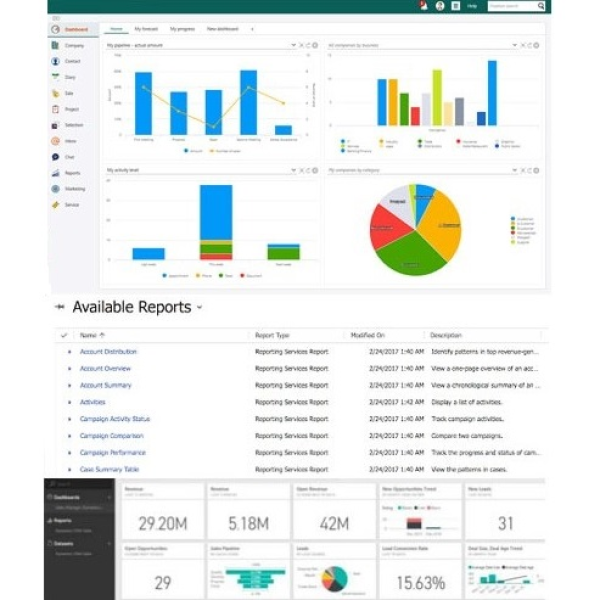- sales force software

The Importance of Reporting Tools in CRM Software
The Importance of Reporting Tools in CRM Software
In the fast-paced business environment, especially in sectors like pharmaceuticals and healthcare, the ability to make informed decisions based on accurate data is paramount. Customer Relationship Management (CRM) software plays a vital role in this regard, and its reporting tools are among the most crucial features. These tools provide insights that drive strategy, enhance performance, and ultimately lead to better customer relationships.
Understanding CRM Reporting Tools
CRM reporting tools allow companies to gather, analyze, and visualize data related to customer interactions, sales performance, and market trends. Effective reporting helps organizations assess their strategies and identify areas for improvement. The importance of these tools cannot be overstated, as they empower businesses to make data-driven decisions, track KPIs, and optimize operations.
Types of Reporting Tools
- **Tabular Reports**: These reports present data in a grid format, making it easy to view detailed information at a glance. Tabular reports are especially useful for analyzing specific datasets, such as sales figures or customer interactions. They allow users to filter, sort, and manipulate data based on various parameters, providing a comprehensive overview of performance metrics. For instance, a tabular report might list all sales representatives along with their sales numbers, conversion rates, and customer feedback.
- **Chart Reports**: Visual representations of data, such as bar charts, pie charts, and line graphs, make it easier to identify trends and patterns. Chart reports allow users to quickly grasp complex information at a glance. For example, a pie chart could illustrate the market share of different products, while a line graph might show sales growth over time. These visual tools help stakeholders quickly understand performance and make comparisons.
- **Dashboards**: Dashboards combine multiple reporting elements into a single view, showcasing key metrics and performance indicators. They offer a real-time snapshot of the business’s health, allowing managers to monitor sales, customer satisfaction, and marketing effectiveness in one place. Dashboards can be customized to highlight the most relevant data for different users, making them highly versatile.
- **Custom Reports**: Many CRM systems allow users to create custom reports tailored to specific needs. This flexibility is crucial for businesses that require unique insights. Custom reports can be designed to focus on particular timeframes, geographic regions, or product lines, enabling deeper analysis.
The Benefits of Effective Reporting
- **Informed Decision-Making**: With access to accurate and timely data, managers can make informed decisions that align with business objectives. This capability is particularly important in sectors where market dynamics can change rapidly.
- **Performance Tracking**: Reporting tools enable organizations to track their performance against set goals. By regularly reviewing performance metrics, businesses can identify what’s working and what isn’t, allowing for timely adjustments to strategies.
- **Identifying Trends**: Historical data analysis through reporting tools helps businesses recognize emerging trends. Understanding these trends can lead to proactive strategies, such as adjusting marketing efforts or product development.
- **Resource Allocation**: Effective reporting allows organizations to allocate resources more efficiently. By identifying high-performing areas, companies can invest more in those segments while addressing underperforming areas through targeted strategies.
- **Enhanced Customer Insights**: Reporting tools provide insights into customer behavior and preferences. This information enables businesses to tailor their offerings, improving customer satisfaction and loyalty.
- **Compliance and Accountability**: In highly regulated industries like pharmaceuticals, accurate reporting is crucial for compliance. Reporting tools help ensure that all interactions and sales activities are documented and accessible for audits.
Conclusion
In conclusion, reporting tools within CRM software are essential for any organization looking to thrive in a competitive landscape. By providing various reporting options—ranging from tabular and chart reports to customizable dashboards—CRM systems empower businesses to make informed decisions, track performance, and gain valuable insights. Ultimately, these tools enhance operational efficiency, foster better customer relationships, and contribute to sustained growth. As companies continue to embrace data-driven strategies, the importance of robust reporting tools in CRM software will only continue to grow.
